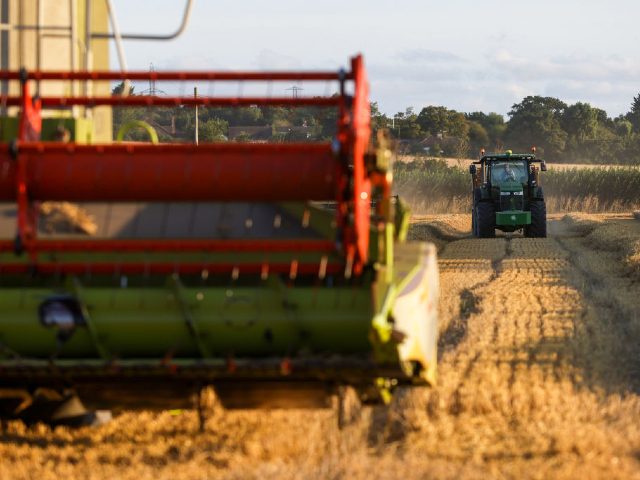Soaring diesel prices could cause food shortages, farmers warned this week.
Speaking at NewsNation’s On Balance with Leland Vittert, President of the National Black Farmers Association John Boyd Jr. said food storages are likely to come in the following months.
“For so long, we’ve enjoyed lots of food in this country, so we’ve never ever faced a food shortage and I think that’s coming in the coming months,” Boyd said.
Diesel prices soared to record highs on Friday, reaching $5.798 per gallon. A year ago, diesel prices were $3.21 per gallon, AAA data shows. The increase represents about a 75 percent increase from last year.
Costly diesel prices disproportionately impact farmers, and thus American grocery shoppers, because the farming industry relies on diesel for food harvesting and transport.
“If the farmers cannot get crops out of the ground, then there is not food on the shelves,” Farm Bureau aide Kyle Kotzmoyer told the Pennsylvania House Republican Policy Committee this week.
In the last 12 months, fruit and vegetables have significantly increased in price, according to the Bureau of Labor Statistics:
- Apples–six percent
- Dried beans–ten percent
- Peas–ten percent
- Lentils–ten percent
- Potatoes–eight percent
Overall, fruits and vegetables have increased in price by eight percent. Grocery store prices soared 11.9 percent.
The food price spikes will cost the average American family an extra $460 per month, according to Moody’s projection in June. In March, that projection was lower; Bloomberg estimated families would be charged an extra $5,200 in 2022, or $433 per month, 27 dollars less than the June projection.
The soaring costs are altering consumer habits, June’s BMO Real Financial Progress Index survey revealed:
- 42% are changing how they shop for groceries. This includes opting for cheaper items, avoiding brand names, and buying only the essentials.
- 46% are either dining out less or consciously spending less when dining out.
- 31% are driving less to offset the soaring cost of gas.
- 23% are spending less on vacations or canceling them altogether.
- 22% are taking measures such as canceling subscriptions to the gym, cable, etc.
In 2019, then-candidate Joe Biden said he would “end” the fossil fuel industry in the United States.
“I want you to look at my eyes. I guarantee you, I guarantee you we’re going to end fossil fuels,” he said in New Castle, New Hampshire.
According to polling, 80 percent of citizens believe inflation is an “extremely/very important” factor in how they will vote in midterm elections. Seventy-four percent said the same about gas prices.
Follow Wendell Husebø on Twitter and Gettr @WendellHusebø. He is the author of Politics of Slave Morality.

COMMENTS
Please let us know if you're having issues with commenting.